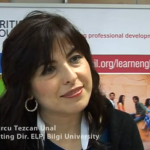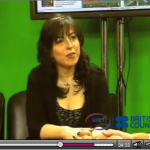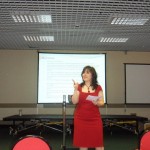“He who stops being better stops being good.” Oliver Cromwell
 This is one of those daily table calendar quotes. It was scripted for a day in August on my table. As soon as I saw it, I loved it. How true! I guess it is true for anything. The other day, a friend of mine was complaining about how he feels about his Salsa dancing skills which has gone backwards recently. He said he has not been learning anything new, or practicing anything he has learned and that he needs to get back to practice it in order not to go backwards. A bit like , you need to water the plants to keep them alive and growing.
This is one of those daily table calendar quotes. It was scripted for a day in August on my table. As soon as I saw it, I loved it. How true! I guess it is true for anything. The other day, a friend of mine was complaining about how he feels about his Salsa dancing skills which has gone backwards recently. He said he has not been learning anything new, or practicing anything he has learned and that he needs to get back to practice it in order not to go backwards. A bit like , you need to water the plants to keep them alive and growing.
Last May, IATEFL Teacher Development SIG and Learning Technologies SIG joint event which took place in Istanbul hosted a renowned speaker J.J. Wilson who had a plenary talk entitled “Mentors, Myths, and Memories: The Dream Lives of Teachers” J.J. asked us the following question:
What do you do to develop as a teacher?
And here are his answers and my reflection on them:
1. Read deeply: There is so much to learn out there. The things you already know or you think you know about, need to be revisited to refresh yourself. Although I have been reading a lot in ELT, when I come across a question I see that I need to go back and read again to be able to answer the question properly. For example, I was asked about Lexical Syllabi the other day. Well, I was not ready to give a good reply. I had to go back and revise what I thought I knew. Needless to say, reading in general is also extremely important for a teacher.
be revisited to refresh yourself. Although I have been reading a lot in ELT, when I come across a question I see that I need to go back and read again to be able to answer the question properly. For example, I was asked about Lexical Syllabi the other day. Well, I was not ready to give a good reply. I had to go back and revise what I thought I knew. Needless to say, reading in general is also extremely important for a teacher.
2. Do an Action Research: I have been helping some of the teachers who would like to do AR in the institution I work for. It is fascinating to research in a small scale and see how some of our assumptions are sometimes so wrong. It is a great learning experience. If you enjoy academic studies, doing an AR or CR (Classroom Research) is a great way of improving yourself and looking for answers and/or just to understand a classroom issue a bit better.
3. Write your own materials and reflect on them: All of us feel the need to adapt the materials we have in hand to our students’ needs. When we actually produce a material, though, we come to think the learning process and this gives us a totally different perspective. I can see why J.J. says that it is a way of improving yourself as an ELT teacher.
4. Write articles: This is an area I need to focus more on. I am personally not a very active article writer. I appreciate the articles I read. There are so many things I do that I could turn into articles but I am putting them off :(. Maybe I should put it in my new year’s resolutions list 🙂 .
 5. Collaborate: The synergy created in groups is fantastic. Learning from one another is a practice that we can benefit from so much. After all, you cannot do everything or learn everything on your own. And every one of us has experience and interests in different areas. We are so lucky that online platforms give us great opportunities to share ideas and collaborate. So like one colleague once said to me, they can stay anonymous in online platforms and feel safer since sometimes they are judged by some older/more experienced colleagues when they ask questions. As awful as it sounds, this may be a case at times, at least in my culture it definitely may be a case.
5. Collaborate: The synergy created in groups is fantastic. Learning from one another is a practice that we can benefit from so much. After all, you cannot do everything or learn everything on your own. And every one of us has experience and interests in different areas. We are so lucky that online platforms give us great opportunities to share ideas and collaborate. So like one colleague once said to me, they can stay anonymous in online platforms and feel safer since sometimes they are judged by some older/more experienced colleagues when they ask questions. As awful as it sounds, this may be a case at times, at least in my culture it definitely may be a case.
6. Teach a new course: How this would help us improve is pretty obvious actually. You tend to get stale while giving the same courses the whole time. It is refreshing to teach a new course. A bit like, leaving your comfort zone. Catherine Pulsifer says “Your comfort zone is not a place that you want to remain in. Dare, discover, be all that you can be.” And if you don’t like it you can always go back to what you have originally been doing. The learning along the line will be your reward. This last year I taught in the ELT department first time. I loved the experience. I learned so much. It gave me the opportunity to look at the classroom practices from a different perspective. I will go on doing this next semester and can’t wait for the new experiences.
7. Giving a worskshop for colleagues: This is another useful way of leaving your comfort zone. Thanks to these people who take the time to share their knowledge, experience and researches, we have learned so much. As it is an amazing experience to share what you have developed with other colleagues, it is another great learning opportunity from many perspectives. I am proud of taking part in conferences, institutional workshops and learn a lot before, while and after these sessions.
people who take the time to share their knowledge, experience and researches, we have learned so much. As it is an amazing experience to share what you have developed with other colleagues, it is another great learning opportunity from many perspectives. I am proud of taking part in conferences, institutional workshops and learn a lot before, while and after these sessions.
8. Keeping a teaching journal: This is something I have not tried. I observe my husband who is doing his MA at University of Manchester keeping a journal. I think it is especially useful if you have a focus. For example, you may focus on giving instructions and at the end of the day or week you can jot down what you have noticed about your instructions. Are they effective, clear and staged? Do you need to repeat what you have instructed? Do you see that students are doing what you want while monitoring or not? Or you can focus on the effects of praising students and reflect on it. For example, my husband, Lee, noticed that he was praising a shy student to encourage him after every single correct answer, and when he didn’t the student felt unsure of his answer even if it was correct. In a way, he noticed that he was actually over-praising the student. It is amazing what you realise about your teaching while reflecting on a certain topic.
9. Mentoring: Novice teachers benefit so much from observing a mentor and/or working with a mentor. That’s obvious. How come a mentor can benefit from this, and consider this as a way of developing professionally? Well, I guess we learn best while we are teaching something. When we are asked to a be a mentor, we take the responsibility and do our best to accommodate the novice teacher and support him/her in this journey. After all, every one of us was a novice teacher once. We probably remember the mentors we had over the years and appreciate them.
10. Use PLNs (Personal Learning Network): We are living in an era when communication is extremely easy. Just take a look at how much you spend on your internet connection, wifi, etc. Well, we can make use of this by connecting people professionally as well. There are amazing opportunities out there for creating your own PLN. I use lots of IATEFL , TESOL affiliated professional groups in facebook and follow tweets of incredibly active, creative and hardworking people such as Shelly Terrell, Nik Peachey, Ozge Karaoglu and so many others.
11. Go to conferences and courses: Since 1994, I have been attending conferences. Sometimes I was amongst the audience, a lot of times I was also one of the speakers. Sometimes I enjoyed them greatly, sometimes not so much. But I have always learned one thing or another each time from colleagues. Even if you do not learn anything new, it is important to revise what you have already known. It is said that teachers do not change habits by encountering a new idea the first time anyways.
12. Learning another language (esp. if you are a native):
I guess even if you are not a native speaker, i.e. English is a foreign language for you, sometimes it is still so important to learn a different language. If you are really good at a certain foreign language, you tend to forget how you have learned it. It is so important to put yourself into the students’ shoes after a long time passed since you got your proficiency. So learning a new language (especially in a classroom) can help you understand how some exercises may be extremely boring or how frustrated you feel when you are asked to produce the new language in a short time. Surely, since native speakers learned the language they teach as their mother tongues, they will have a totally different understanding of learning a language as a foreign language and will emphasize with the learners better. I experienced the former while I was trying to learn Italian and the latter when I was trying to teach Turkish.
The demands of new generation is also requiring a teacher to be updated all the time as a person and as a professional. Teachers may choose one or a few of the many choices listed above or create their own not to stop being good.







